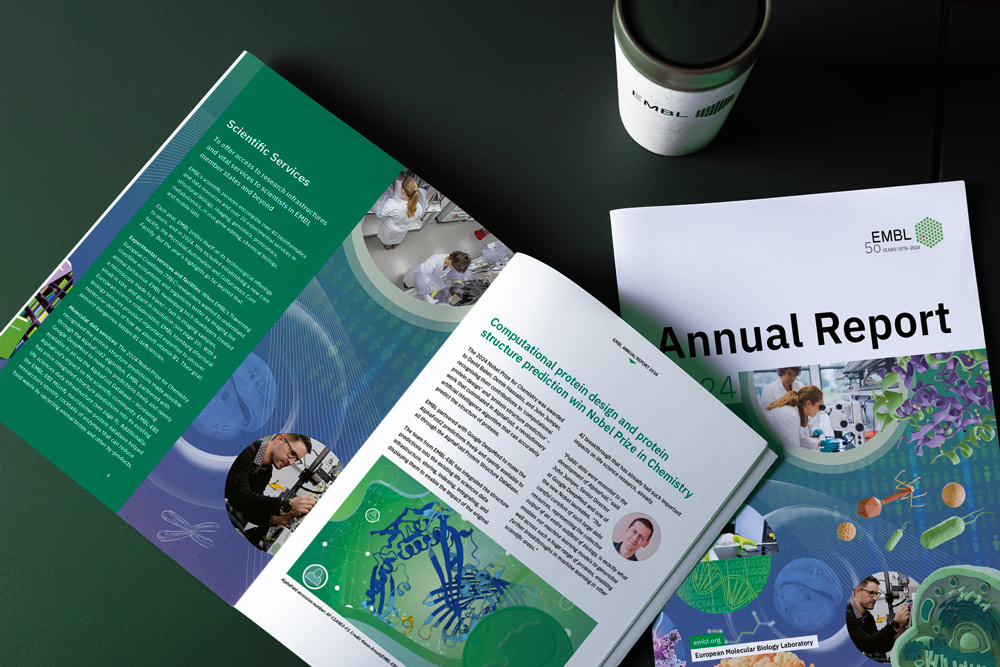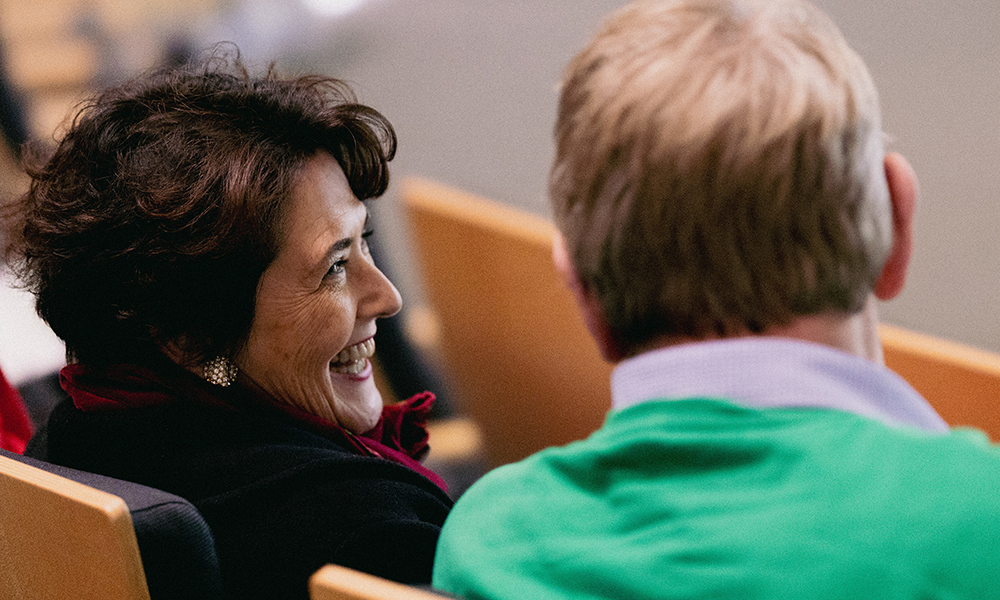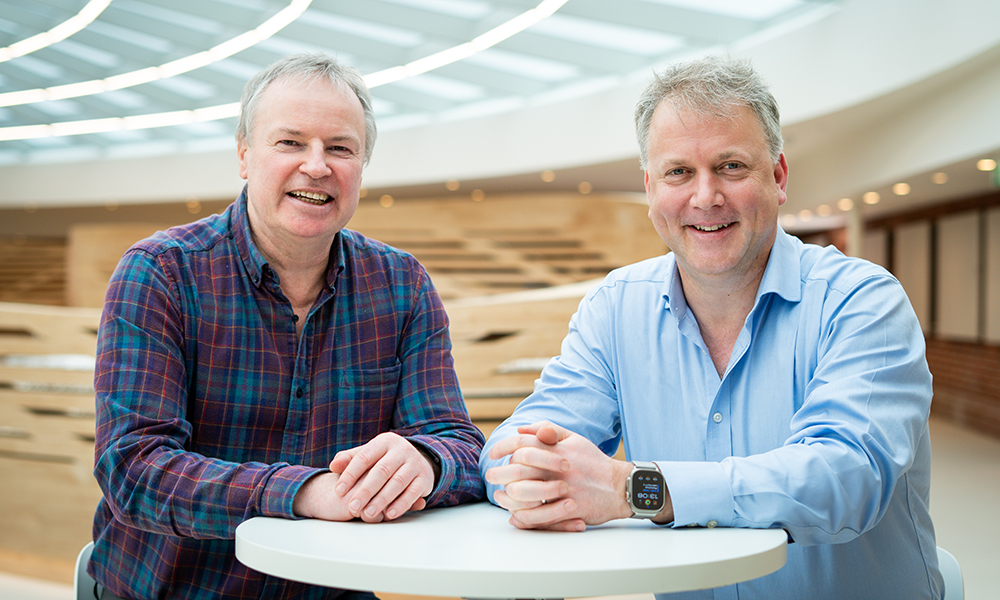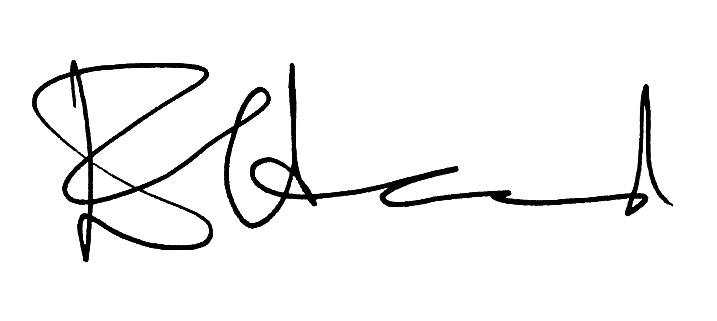
Acceleration in the right direction
We celebrated 50 years of growth and achievements, but EMBL is shaping its future today

The year 2024 offered a unique opportunity to reflect on the past while also looking forward.
It wasn’t just because it was EMBL’s 50th anniversary – which was certainly an auspicious occasion. In 2024, our three-year-old ‘Molecules to Ecosystems’ programme demonstrated that it is pointing us in the right direction. EMBL is accelerating toward its next 50 years…and beyond.
In 2022, when we started this research programme, I was excited by the expanded direction in which it would lead us. Our Traversing European Coastlines (TREC) project would take molecular biology expertise into the field. We would forge new collaborations. We would push technology, bringing it into environmental settings, too. We would harness the newest, most sensitive tools to ensure success across the entire organisation and across Europe, more generally. And most importantly, we would broaden EMBL’s perspective to address critical societal issues that benefit from an interwoven molecular perspective in multidisciplinary approaches.
This year’s annual report offers a glimpse into the ongoing engagement that we sparked – involvement I attribute to our amazing staff and our programme’s collaborative approach to studying life in context. The linked stories highlight the steady pace of fundamental life sciences work that increasingly shed light on the complexity of living matter, biodiversity, and ecosystem changes. I believe our work has a new sense of urgency.
Transversal themes that framed some new research directions
The programme’s transversal themes have been central in bringing together disciplines that look at research questions with broader perspectives. TREC – our planetary biology transversal theme’s flagship project – finished its sampling phase mid-year, and scientists gathered for a symposium a few months later, where discoveries were already coming to light. More broadly, EMBL scientists are shifting from more classical research questions to approaches that take them in new directions, exploring organisms with extraordinary spatio-temporal resolution and in different environmental contexts.
Additionally, our new chemical library allowed researchers to better understand some of the root causes of decreasing insect populations, and our scientists continued to be pioneers and explorers in other ways as well, discovering new life forms and new ways cells divide and function, and essentially contributing to the body of knowledge that makes up an encyclopedia for life. New technologies and approaches like expansion microscopy have made for a rich year of research accomplishments.
Scientific and data services that pushed technology’s limits
When the 2024 Nobel Prize judges recognised AlphaFold’s creators for this display of open, AI-driven protein prediction data, it was a proud moment for us all, as it illustrated how EMBL can drive and enable scientific revolutions. Last year, we also launched the first major AI life sciences meeting in Europe. The future of scientific research is in AI, as it holds the potential to accelerate science and advance knowledge faster than ever before. Indeed, the recent launch of EMBL’s AI strategy will enable a whole new era for the organisation, with implications for every one of our five missions.
EMBL’s technology accomplishments were many in the past year. We continued to expand the emerging technology of high-energy X-ray imaging to capture tissues and whole organisms at high resolution. Our automated EasyGrid sample preparation allowed more scientists to employ cryo-EM. We also opened a brand new culturomics core facility with cutting-edge technology to expedite research on microbes and their microbial communities.
Redefined training that inspired
Our courses and conferences continued to expand offerings to reflect advances in how we conduct research, such as the many ways to leverage AI. The year also included a unique ‘Unfold Your World’ outreach project that mixed art with science, and we saw scientists from all career stages increasingly join us as visitors to experience EMBL’s collaborative environment while learning more about new technologies. And EICAT’s success in achieving two new cofunded EC programs for EMBL’s ARISE2 and EIPODLinC will allow EMBL to train up a whole generation of young scientists!
Collaboration that united European states
In addition to Bulgaria joining EMBL as our newest prospect member state, the year was marked by many new collaborations across Europe. The European Commission-funded Twinning Projects are bringing EMBL closer together with institutes in Slovakia and Portugal, enhancing Europe’s broader scientific capacity. We have also worked intensively with the EC and European research infrastructures to best represent the voice of life sciences to decision-makers in the EU, our member states, and beyond.
Innovation that incited new partnerships and projects
One of EMBL’s most interesting collaborations is its Agri-Tech partnership aimed at optimising agricultural research and development by effectively providing for, managing, and using agricultural biodata. The year offered increased work within this partnership, and likewise, we saw our long-term relationship with Nikon expand to accommodate more efficient innovation.
Of course, this is just a very small sample of the accomplishments that made such a productive year. I found the juxtaposition of immense productivity and success against the backdrop of our 50th anniversary to be very fitting because growth and accomplishment aren’t just parts of our history. They’re EMBL’s story of today and the foundations of the future.

This is my last annual report, as I move on to lead the Francis Crick Institute in 2025 – another one of EMBL’s close partners. I will miss the wonderful people I have worked with across EMBL’s six sites, and I am proud of the new directions and momentum I have had the privilege to lead over the past six years. I have witnessed the commitment, curiosity, and creativity of countless people here and among our many partners.
To ensure a seamless transition until a permanent EMBL Director General is in place, Peer Bork and Ewan Birney will together lead the organisation as Interim Director General and Executive Director, respectively. I know that EMBL is in good hands and will continue to propel European science. I look forward to following its successes as it continues to address life science’s biggest questions.

